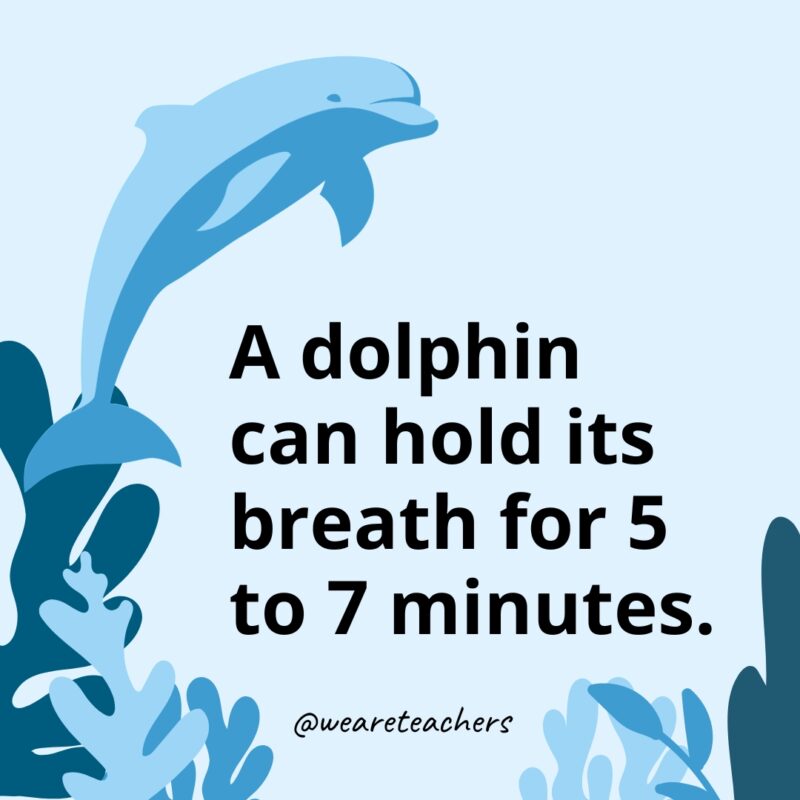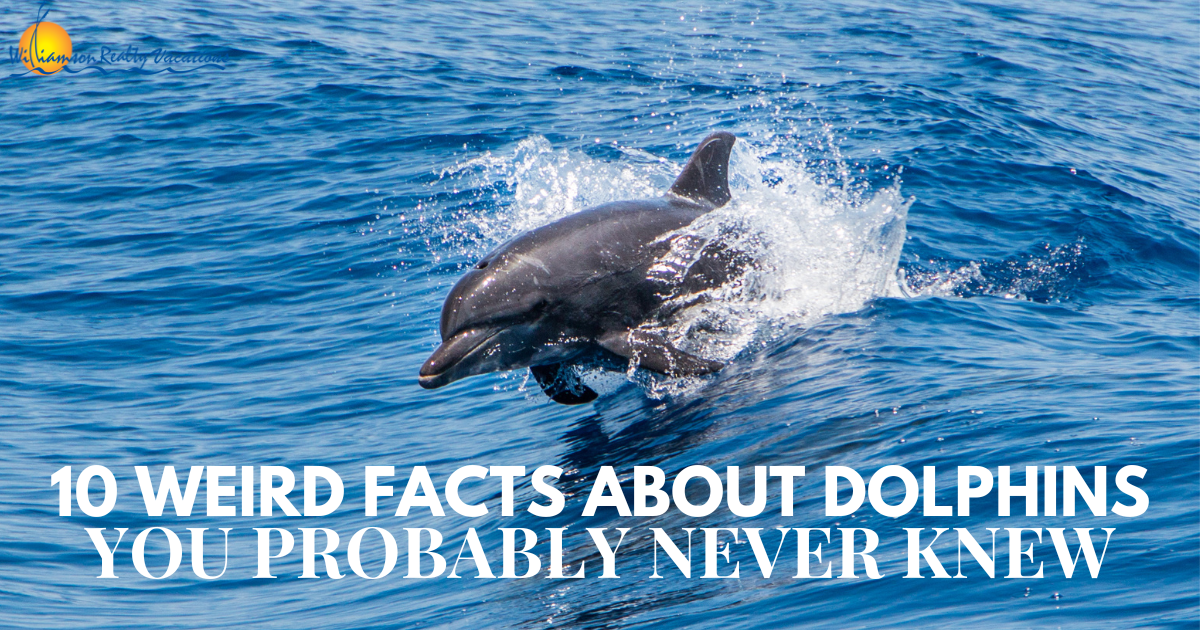Interesting Dolphin Facts to Show Your Friends and Family
Wiki Article
Study the Sea: Captivating Dolphin Truths for Sea Lovers
The world of dolphins presents a remarkable junction of intelligence, social habits, and ecological significance. With approximately 37 species, these aquatic mammals display a variety of amazing characteristics that not only astound ocean enthusiasts yet likewise highlight their important duty in aquatic ecosystems. From their intricate communication techniques to their excellent problem-solving capabilities, dolphins test our understanding of animal knowledge. The pushing demand for preservation initiatives to secure these animals and their environments raises critical concerns concerning our obligation towards the sea's inhabitants. What implications do these elements hold for our interactions with these impressive beings?Dolphin Species Variety
Variety is a characteristic of the dolphin family members, encompassing a wide variety of varieties that show unique physical characteristics, behaviors, and environments. The household Delphinidae, typically called nautical dolphins, comprises about 37 varieties, each adapted to certain eco-friendly particular niches. As an example, the bottlenose dolphin (Tursiops truncatus) is renowned for its knowledge and flexibility, thriving in both open and seaside ocean atmospheres.On the other hand, the orca (Orcinus whale), commonly described as the killer whale, is the largest participant of the dolphin household and is defined by its striking black-and-white pigmentation. Orcas demonstrate complex social structures and hunting strategies, showcasing the behavior diversity within the family members. Various other types, such as the spinner dolphin (Stenella longirostris), are kept in mind for their acrobatic display screens and choice for warmer waters, highlighting the versatility of dolphins to different marine ecological communities.
Additionally, river dolphins, consisting of the pink river dolphin (Inia geoffrensis), occupy freshwater environments, better highlighting the comprehensive habitats that dolphins inhabit. Dolphin Facts. This amazing diversity not only enriches marine ecological communities yet likewise emphasizes the value of conservation efforts to protect these amazing animals and their settings
Social Habits and Communication
The complex social behavior and communication approaches of dolphins are essential parts of their presence, promoting team communication and enhancing survival. These extremely intelligent marine creatures exhibit complicated social structures, commonly creating shells that can vary from a couple of individuals to over a hundred. Within these groups, dolphins take part in behaviors such as cooperative searching, social play, and shared defense, which cultivate strong bonds among members.Dolphins use a sophisticated variety of vocalizations, including clicks, whistles, and body movement, to share information and share feelings. Their trademark whistles offer as unique identifiers, comparable to names, allowing individuals to call out to one another. This vocal communication is matched by non-verbal signals, such as jumping, slapping the water, and integrated swimming, which further enhances their communications.

Unique Feeding Routines
Distinct feeding habits characterize dolphins, showcasing their versatility and intelligence in various marine environments. These marine animals are known for their diverse diet regimens, which mainly include fish, squid, and shellfishes. Their searching techniques can vary dramatically, usually customized to the details prey and environmental problems.One noteworthy approach is cooperative searching, where dolphins operate in teams to herd colleges of fish right into limited developments, making it simpler for individuals to capture their dish. This social habits not only improves their feeding performance however additionally enhances social bonds within the capsule. Additionally, dolphins have been observed utilizing a method called "fish-whacking," where they utilize their tails to stun or disorient fish, facilitating simpler capture.
One more remarkable feeding routine is echolocation, which permits dolphins to discover prey also in murky waters. By producing acoustic waves and translating the returning mirrors, they can identify the size, form, and area of their targets. This amazing ability emphasizes their flexibility in various environments, from superficial seaside locations to much deeper nautical waters. Generally, the unique feeding habits of dolphins highlight their duty as proficient predators within the marine ecological community, demonstrating both knowledge and resourcefulness.
Knowledge and Trouble Resolving
Dolphins exhibit amazing cognitive capabilities that prolong beyond their innovative feeding strategies. Their intelligence appears in their analytic abilities, social communications, and capacity for understanding. Research study has actually demonstrated that dolphins can utilize tools, such as using marine sponges to safeguard their rostrums while foraging on the seafloor. This behavior highlights their capacity to adjust their environment efficiently and adapt strategies to boost survival.In addition, dolphins exhibit sophisticated communication abilities, utilizing a complex system of clicks, whistles, and body language. Dolphin Check This Out Facts. This interaction is vital for collaborating group activities, such as searching and mingling, illustrating their capability to work jointly towards a common goal. Their capacity to comprehend abstract principles, including self-recognition in mirrors, even more emphasizes their cognitive sophistication
In regulated research studies, dolphins have revealed an ability to solve problems and do jobs that need both memory and crucial thinking. These interactions indicate not just intelligence yet additionally a readiness to involve with their environment in novel means. Generally, the cognitive expertise of dolphins positions them amongst the most smart species on the world, cultivating a deeper gratitude for their duty in marine communities.
Conservation and Environmental Influence
Preservation initiatives aimed at securing marine communities are vital for protecting dolphin populations and their habitats. Dolphins are highly delicate to ecological adjustments, and their survival is elaborately connected to the health of oceanic ecological communities. Overfishing, contamination, and climate modification posture substantial risks to both dolphins and their settings.Overfishing interrupts the food cycle, causing a decrease in target varieties crucial for dolphin survival. Pollutants such as plastics and chemicals collect in marine environments, threatening dolphins with ingestion and bioaccumulation. Increased water temperature levels and ocean acidification, consequences of climate change, additionally endanger the delicate balance of aquatic ecological communities, influencing dolphin reproduction and migratory patterns.
By prioritizing conservation initiatives, we can make certain that future generations take pleasure in the elegance and vigor of dolphins and the seas they occupy. Shielding marine communities is not just concerning saving dolphins; it is regarding protecting the intricate internet of life that maintains us all.
Verdict
Dolphins exemplify the intricacy and splendor of aquatic life via their diverse species, elaborate social structures, and advanced cognitive abilities. Their unique feeding routines and communication methods even more show their flexibility and knowledge. As essential elements of aquatic ecological communities, dolphins highlight the requirement of ongoing conservation initiatives to protect their environments. Safeguarding these exceptional creatures is crucial not just for their survival but also for maintaining the wellness and equilibrium of sea atmospheres globally.Other varieties, such as the spinner dolphin (Stenella longirostris), are kept in mind for their acrobatic display screens and choice for warmer waters, highlighting the flexibility of dolphins to visit their website numerous marine ecosystems.
On the whole, the distinct feeding routines of dolphins highlight their duty as proficient predators within the aquatic ecological community, demonstrating both intelligence and ingenuity.
In general, the cognitive prowess of dolphins positions them amongst the most click reference intelligent varieties on the planet, fostering a deeper appreciation for their function in aquatic environments.

Report this wiki page